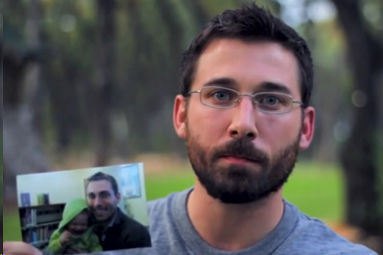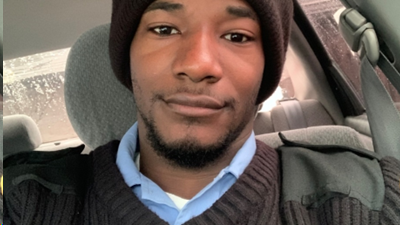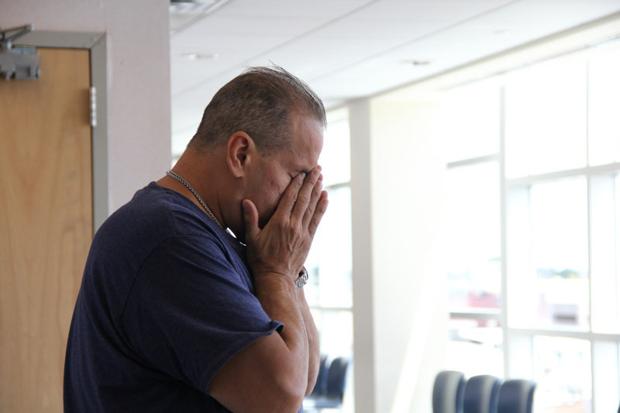Victims of New Jersey Gun Laws
This isn't just about gun laws; it's about the human cost of legislation that fails to recognize the fundamental right to protect oneself. It's about the emotional and psychological scars left on those who, in seeking to exercise their Second Amendment rights, found themselves at odds with a state that seemed to forget the very principles it was founded upon. Their stories are a poignant reminder of why the conversation around gun control must always consider the individual, the vulnerable, and the law-abiding citizens who are inadvertently caught in the crossfire of well-intentioned but overly restrictive laws.
- Carol Bowne
- Jeffrey Muller
- Roosevelt Twyne
- Gregg Revell
- Brian Aitken
- Raymond Pelleteri
- Shaneen Allen
- Steffon Josey-Davis
- Gordon van Gilder
- Keith Pantaleon
- Meg Fellenbaum
- Carl Goias
- Lukey Shaffer
- Rick Rogers

Carol Bowne
June 4rd, 2016
The Unheard Echoes of Carol Bowne: Carol's life, and her untimely death, serve as ongoing dialogue about self-defense.
The Life of Carol Bowne:
Born in the late '70s, Carol grew up in an era where personal safety was becoming increasingly intertwined with legal rights. Her life took a turn when she faced domestic violence, a situation that many might find themselves in, but her response was to seek protection through legal means, including a restraining order against her abuser, Michael Eitel. However, Carol's story took a darker turn when the very system she turned to for protection failed her.
The Struggle for Protection:
Carol's decision to apply for a firearm permit was not just about owning a gun; it was about reclaiming her autonomy and safety. In New Jersey, the process for obtaining a gun permit is notoriously slow, often leaving applicants in a vulnerable state for months. Carol's application, filed in April, was still pending when she was murdered in June, highlighting the bureaucratic delays that can have fatal consequences.
Imagine Carol's daily life, filled with the normalcy of work as a hairdresser, her plans for a birthday celebration, and her fear, a constant companion due to her ex's threats. Her friends describe her as meticulous, someone who took steps to secure her home with cameras and alarms, yet the one tool she believed could offer real protection was out of reach due to legal red tape. This personal detail underscores the human aspect of gun rights; it's not about abstract laws but about real people's lives.
The Aftermath and Advocacy:
Carol's murder sparked a wave of advocacy for quicker permit processes for victims of domestic violence. Her case became a rallying cry for Second Amendment supporters who argue that the right to bear arms is not just about hunting or sport but about the fundamental right to self-defense. Her story has been used to illustrate how restrictive gun laws can disarm the very people who need protection the most.
Conclusion:
Carol Bowne's life and death are a microcosm of the debate over gun rights in America. Her story isn't just about the Second Amendment; it's about personal freedom, the right to protect oneself, and the tragic consequences when those rights are delayed or denied. Her legacy, continues to echo, reminding us that behind every legal argument are real lives, real fears, and the desperate need for safety. Carol's narrative serves as a call to action, urging a reevaluation of how we approach gun laws, not just as a matter of policy, but as a matter of life and death.

Jeffrey Muller
January 8, 2010
The Jeffrey Muller Story: Mistaken Identity - Kidnapped, Bound and Gagged over 1000 Miles, Still Not Enough for Justifable Need in NJ
The Incident
Jeffrey Muller, a pet store owner from Newton, New Jersey, was kidnapped in a case of mistaken identity on January 8, 2010. The kidnappers, led by William Barger, were actually targeting another Jeffrey Muller, a money broker from Mahwah, New Jersey, due to a financial dispute involving around $500,000. Barger, who falsely claimed to be the son of Sonny Barger, the founder of the Hells Angels, orchestrated the kidnapping by promising membership in a new Hells Angels chapter to three men from Missouri: Andrew Wadel, Douglas Stangeland, and Lonnie Swarnes. When they couldn't find the intended target, they mistakenly abducted the Newton Jeffrey Muller outside his pet store, using a stun gun and zip ties to subdue him before forcing him into a car for a cross-country trip.
During this harrowing ordeal, Muller was subjected to physical abuse and threats. The kidnappers drove over 1,000 miles towards Missouri, with Muller bound and gagged in the back seat. The situation escalated when their vehicle broke down in Missouri, providing Muller with an opportunity to escape. Initially, when one of the kidnappers fell asleep, Muller managed to free his hands and fled towards a convenience store for help. However, he was initially misunderstood by a bystander who thought he was attacking someone, leading to a brief recapture. Fortunately, Muller managed to escape once more and sought help from inside the store.
Jeffrey sought a permit to carry a concealed handgun, arguing his case on the grounds of self-defense due to the potential threat from his kidnappers or their associates. Initially, his application was met with denial by a judge who reasoned that since the kidnappers were apprehended, there was no longer a "justifiable need" for Muller to carry a firearm. This decision was based on the premise that the immediate danger had been neutralized with the arrest of those involved, thus not fulfilling the stringent criteria set by New Jersey law for issuing carry permits.
Conclusion
The case took a turn when another judge, upon further review and considering Muller's unique situation, overturned the initial denial. This judge acknowledged Muller's "special danger" due to the nature of his kidnapping, where he was mistaken for another Jeffrey Muller in a case of mistaken identity over a financial dispute. The ruling highlighted the "urgent necessity" for Muller's self-protection, recognizing that despite the arrest of his kidnappers, the underlying issues that led to his abduction might still pose a risk, particularly from associates or relatives of the perpetrators seeking revenge.
The impact of Muller's case extended beyond his personal security, sparking a broader debate on Second Amendment rights and the criteria for issuing carry permits in light of personal security threats. This incident not only brought attention to the treatment of gun owners in states with restrictive gun laws but also emphasized the need for legal clarity and respect for constitutional rights across state lines. Jeffrey Muller's ordeal and the subsequent legal battles became emblematic of the ongoing tension between individual rights to self-defense and the regulatory framework governing firearm possession in the U.S.

Brian Aitken
January 2nd, 2009
The Brian Aitken Story: His life took a dramatic turn when, in 2009, amidst a personal crisis involving a divorce and a cross-country move from Colorado to New Jersey to be closer to his son!
In the heart of America's ongoing debate over gun rights, the story of Brian Aitken stands as a stark reminder of how personal freedoms can clash with legal interpretations, leading to outcomes that shock the conscience of many. Brian Aitken's journey from a successful media consultant to a convicted felon, and his subsequent fight for justice, encapsulates the complexities of Second Amendment rights in the modern era.
The Move and the Misstep
Brian Aitken, born in July 1969, was not your typical figure in the gun rights debate. His life took a dramatic turn when, in 2009, amidst a personal crisis involving a divorce and a cross-country move from Colorado to New Jersey to be closer to his son, he found himself ensnared by one of the nation's strictest gun laws. Aitken, having legally purchased firearms in Colorado, was unaware that transporting these guns, even disassembled and locked in his trunk, without specific New Jersey permits, was illegal. This oversight led to his arrest after a welfare check turned into a search of his vehicle.
The Legal Battle
What followed was a legal ordeal that many would argue was a miscarriage of justice. Despite Aitken's efforts to comply with what he understood of the law, including passing FBI background checks and researching New Jersey's gun laws, he was sentenced to seven years in prison. This sentence was for a crime where no one was harmed, no threat was made, and the guns were stored in a manner that would suggest responsible gun ownership. The case drew widespread attention, not just for its severity but for the questions it raised about the application of gun laws and the intent behind them.
A Personal Tragedy
Aitken's story isn't just about legal battles; it's deeply personal. His conviction led to him being labeled a felon, affecting his relationship with his son, whom he was moving closer to see more frequently. The emotional toll was immense, as detailed in his own words and through the accounts of those close to him. His case became a rallying cry for those advocating for Second Amendment rights, highlighting how laws intended to prevent gun violence could punish law-abiding citizens caught in legal gray areas.
The Aftermath and Advocacy
Governor Chris Christie eventually commuted Aitken's sentence, recognizing the unusual nature of the case. However, the impact on Aitken's life was irreversible. His journey into advocacy for gun rights wasn't just about his case but about ensuring others wouldn't face similar injustices. His story underscores the need for laws that consider context, intent, and the rights of individuals who seek to comply with the law.
A Reflection on Gun Rights
Brian Aitken's experience serves as a poignant narrative in the broader discussion on gun rights in America. It's a story of how personal life decisions can intersect with legal frameworks in ways that are neither intuitive nor just. For supporters of the Second Amendment, Aitken's case is not just about the right to bear arms but about the broader implications of how laws are interpreted and applied. It's a call for clarity, for justice, and for laws that respect the rights of individuals while aiming to protect society.

Steffon Josey-Davis
September 20, 2013
The Steffon Josey-Davis Story: An aspiring law enforcement officer, had his life turned upside down by a routine traffic stop!
In the heart of New Jersey, where gun laws are among the strictest in the nation, Steffon Josey-Davis's story stands as a poignant reminder of the complexities surrounding Second Amendment rights. His journey, marked by a simple mistake that turned his life upside down, encapsulates the personal impact of gun legislation on everyday Americans.
A Life of Service and Responsibility
Steffon Josey-Davis was not just another gun owner; he was an aspiring law enforcement officer, working as an armored car driver, a job that inherently involves a level of risk and responsibility. His choice to carry a firearm was not for bravado or for any criminal intent but for personal safety, a right many believe is enshrined in the Second Amendment. His life was about service, from his ambitions to join the police force to his daily work ensuring the safety of financial assets, reflecting a commitment to protect and serve.
The Incident That Changed Everything
The day that changed Josey-Davis's life was not marked by violence or crime but by a routine traffic stop. In a scenario that could happen to anyone, he was pulled over, and during the interaction, he disclosed his legally owned firearm, which he had placed in his glove compartment, a common practice for many legal gun owners for safety and accessibility. However, what followed was not a simple citation but an arrest for unlawful possession of a weapon, a charge that, under New Jersey's stringent gun laws, could lead to significant penalties.
The Legal Battle and Its Personal Toll
Facing the possibility of years in prison, Josey-Davis opted for a plea deal, which resulted in a year of probation. This decision was not just about avoiding jail; it was about preserving his future, his ability to work, and his dream of becoming a police officer, a dream now potentially shattered by a legal system that many argue has overreached. His story highlights the emotional and psychological toll such legal battles take, not just on the individual but on their families and aspirations.
Conclusion
Steffon Josey-Davis's journey through the legal labyrinth of gun ownership rights in America serves as a testament to why the Second Amendment remains vital. It's not just about the right to bear arms; it's about personal freedoms, the right to defend oneself, and the right to live without the fear of legal repercussions for exercising those rights responsibly. His story is a rallying cry for those advocating for a more sensible approach to gun legislation, one that balances public safety with personal liberties. In Josey-Davis, we see not just a case study but a human face of the Second Amendment, reminding us of the personal stakes involved in this ongoing debate.

Shaneen Allen
October 1st, 2013
The Shaneen Allen Incident: Despite being licensed to carry in her home state, New Jersey's stringent laws regarding firearms transport led to her arrest.
In the annals of Second Amendment debates, few stories capture the essence of the argument for gun rights as poignantly as that of Shaneen Allen. Her story, while not widely known, serves as a critical examination of how gun laws can intersect with personal freedoms, leading to outcomes that many argue are unjust.
The Incident
Shaneen Allen, a legal gun owner from Pennsylvania, found herself in a legal quagmire when she was pulled over in New Jersey. Despite being licensed to carry in her home state, New Jersey's stringent laws regarding firearms transport led to her arrest. Here's where the personal touch of her story becomes evident:
A Mother's Journey: Shaneen was moving to be closer to her children, a decision driven by a desire to be a more present parent. Her life was not about flaunting gun rights but about personal safety and familial responsibility.
The Law's Complexity: New Jersey's gun laws require firearms to be transported in a specific manner, unloaded, and locked in a container separate from ammunition. Shaneen, unfamiliar with these nuances, complied with what she knew from Pennsylvania law, leading to her arrest for felony weapons charges.
What followed was a legal battle that highlighted several issues:
The case against Shaneen was based on her not knowing the intricacies of New Jersey's gun laws, which many argue are designed to be prohibitive rather than protective.
Personal Impact
Shaneen's ordeal wasn't just a legal battle; it was deeply personal:
The stress of facing felony charges, the potential of losing her rights as a citizen, including her right to bear arms, and the impact on her relationship with her children were profound.
Her case became symbolic, not just for gun rights activists but for anyone advocating for clarity in law, fairness in its application, and the recognition of personal responsibility over legal technicalities.
Beyond legal arguments, her story brings to light the human cost of overly complex or punitive gun laws, affecting not just gun rights but personal lives.

Gordon Van Gilder
November 19th, 2014
Gordon Van Gilder: A retired school teacher and collector of 18th-century memorabilia, found himself at the center of a legal storm.
In the heart of New Jersey, where gun laws are among the most stringent in the United States, Gordon Van Gilder, a retired school teacher and collector of 18th-century memorabilia, found himself at the center of a legal storm that underscores the ongoing debate over the Second Amendment. Van Gilder's story is not just about legal battles; it's a narrative of personal rights, historical reverence, and the consequences of living in a state with laws that some argue overstep constitutional boundaries.
The Incident:
Van Gilder's ordeal began with a routine traffic stop. During this encounter, he voluntarily disclosed the presence of an unloaded, antique 225-year-old flintlock pistol in his glove box. This act of transparency, rather than leading to a simple acknowledgment of his collection, resulted in his arrest. The possession of this historical artifact, under New Jersey's broad gun laws, could see him facing up to 10 years in prison, with a mandatory minimum sentence that could strip him of his freedom for years.
The Legal and Social Consequences:
Van Gilder's case highlights several critical points:
Legal Overreach: The law in question, which criminalizes the possession of even antique firearms, raises questions about the balance between public safety and historical preservation. Critics argue that such laws are a clear infringement on the Second Amendment, designed not for public safety but for disarmament.
Personal Impact: For Van Gilder, the legal battle has been more than a fight for his rights; it's been a personal and financial ordeal. The potential loss of his pension, accrued over 34 years of teaching, adds a layer of economic injustice to his story, suggesting that the law's application can be punitive beyond the intended scope.
Public Discourse: His case has fueled discussions where individuals debate the implications of such laws. From stories of people losing jobs over social media posts to the broader implications of how Second Amendment rights are interpreted, Van Gilder's situation resonates with many who see it as an overreach by the state.
Conclusion:
Gordon Van Gilder's legal battle over an antique flintlock pistol encapsulates the broader struggle for Second Amendment rights. It's a story of how personal interests in history can clash with modern law, highlighting the need for a nuanced understanding of both historical context and constitutional rights.

Raymond Pelleteri
February 5th, 2015
The Raymond Pelleteri Story: Boy Scout Rifle Case
In the annals of Second Amendment advocacy, few stories resonate with the personal touch and the raw emotion of Raymond Pelleteri's experience. While specific details about Pelleteri's personal life might not be widely documented, the essence of his story, provides a poignant backdrop for understanding the depth of gun rights in America.
A Life Altered by Law
Imagine waking up one day to find that your right to protect your family, a right enshrined in the Constitution, has been stripped away due to a non-violent misdemeanor. This isn't a hypothetical scenario for Pelleteri; it's his reality. His firearms, legally owned for years, were seized, leaving him and his family vulnerable. This situation, while not directly detailed in Pelleteri's case, mirrors stories where individuals face threats, not just to their property but to their very lives, due to legal restrictions on gun ownership.
Boy Scout Rifle Case
The case State v. Pelleteri was colloquially referred to as the "Boy Scout Rifle Case" due to the specific type of firearm involved in the legal dispute. Here's why:
Firearm Type: The rifle at the center of the case was a Remington No. 4-S, which was historically known as the "Boy Scout Rifle." This rifle was designed and marketed for the American Boy Scouts, a rival organization to the Boy Scouts of America, in the early 20th century. The rifle was intended for youth training and was emblematic of a time when firearms were part of scouting activities for educational purposes.
Symbolic Significance: The term "Boy Scout Rifle" added a layer of irony to the case. The rifle, once associated with youth education and training, was now at the heart of a legal battle over modern gun laws, particularly those concerning assault firearms. This juxtaposition highlighted the evolution of gun laws and the changing perceptions of firearms in society.
Legal Irony: The case's nickname underscores the legal irony where a firearm historically linked with youth education and safety training became the focal point of a legal debate about what constitutes an "assault firearm" under New Jersey law. This irony was not lost on commentators and legal observers, who pointed out the historical context against the backdrop of stringent modern gun control measures.
Public Perception: The name "Boy Scout Rifle Case" also served to engage public interest, making the legal complexities more relatable by tying them to a familiar, almost nostalgic, piece of Americana. It emphasized the debate over whether such a historically benign firearm should be subject to the same legal scrutiny as modern assault weapons.
This nickname, therefore, not only captured the essence of the legal argument but also highlighted the cultural and historical shifts in how firearms are viewed in American society.
Conclusion: A Call for Clarity and Justice
Raymond Pelleteri's story, while not widely known, serves as a rallying cry for those advocating for clear, fair, and just gun laws. It's a reminder that behind every legal case or policy debate, there are real people whose lives are profoundly affected. For supporters of the Second Amendment, stories like Pelleteri's are not just about the right to bear arms; they're about the right to live free from fear, to protect one's family, and to not be punished for non-violent offenses that have no bearing on one's ability to safely own firearms.

Roosevelt Twyne
February 8th, 2020
The Roosevelt Twyne Case: A licensed security guard for Brinks, was arrested for carrying a firearm and ammunition
The arrest of Roosevelt Twyne in New Jersey has become a focal point for advocates of Second Amendment rights, highlighting the complexities and often the injustices embedded within state gun laws. Here's why Twyne's case serves as a compelling argument for the protection and clarification of gun rights:
The Peril of Overly Complex Gun Laws: Twyne, a licensed security guard for Brinks, was arrested for carrying a firearm and ammunition that he believed he was legally allowed to possess. His case underscores a critical issue: the labyrinthine nature of New Jersey's gun laws. These laws, intended to regulate, often ensnare law-abiding citizens in legal quagmires due to their ambiguity or misinterpretation by law enforcement.
Legal Ammunition Confusion: Twyne was initially charged for possessing hollow-point bullets, which are illegal in New Jersey unless for certain law enforcement uses. However, the ammunition he carried was not hollow-point but polymer-filled, a fact clearly stated on the New Jersey State Police website as legal. This error in law enforcement's understanding exemplifies how even well-meaning gun owners can fall afoul of the law due to misinformation or misinterpretation.
The Right to Self-Defense: Twyne's job required him to carry a firearm, a necessity for his personal safety and the security of the assets he was tasked to protect. His arrest raises questions about the balance between state gun control and an individual's right to self-defense, a cornerstone of the Second Amendment.
A Call for Clarity and Justice: Twyne's situation calls for not just a reevaluation of how gun laws are enforced but also how they're written. The Second Amendment was designed to ensure that citizens could defend themselves, not to be a trap for the law-abiding.
Roosevelt Twyne's arrest, therefore, stands not just as a personal ordeal but as a symbol of the ongoing battle for clarity, justice, and the preservation of Second Amendment rights in the face of complex state laws. It's a reminder for all pro-2A advocates to remain vigilant, informed, and active in ensuring that the right to bear arms remains unencumbered by misinterpretation or overzealous enforcement.

Greg Revell
September 27th, 2009
The Story of Greg Revell: Air Travel Perils and Transporting a Firearm
The case of Greg Revell became significant due to several reasons, highlighting broader issues related to Second Amendment rights, federal vs. state gun laws, and the rights of travelers:
Legal Conundrum: Revell, a Utah resident, was traveling through New Jersey with a firearm he had legally checked with his luggage in Salt Lake City, destined for Pennsylvania. His flight delays led him to spend the night in New Jersey, where he was arrested for possessing a firearm without a New Jersey license, despite his compliance with federal law under 18 U.S.C. § 926A, which allows for the transport of firearms through states where they might otherwise be illegal.
Second Amendment Debate: This incident sparked a national debate on Second Amendment rights, particularly concerning the rights of individuals to transport firearms across state lines. Revell's case underscored the tension between federal protections for gun owners and state-level gun control laws, which can be more restrictive.
Federal Law vs. State Law: The case brought attention to § 926A, which theoretically should protect travelers like Revell. However, the application of this law in real-world scenarios, especially when state laws are more restrictive, remains contentious.
Arrest and Seizure: Revell's arrest and the subsequent seizure of his firearm raised questions about the Fourth Amendment rights concerning unreasonable searches and seizures, especially when conducted under the guise of state law enforcement against what might be considered a lawful act under federal law.
The big deal with Revell's case was not just about one man's legal battle but about the broader implications for how gun laws are interpreted, applied, and potentially reformed across the United States, touching on fundamental rights, federalism, and the practicalities of gun ownership in a country with diverse state regulations.

Keith Pantaleon
January 24, 2013
Keith Pantaleon's Arrest: From a Simple Apartment Heating Check to a Legal Battle Over Rights
The Incident
Pantaleon was in his bedroom, when he heard noises in the living room at around 10:00pm at night. Police officers, accompanied by his landlord, entered his home in the middle of the night under the guise of checking a heating issue. What followed was not a routine home heating inspection but a warrantless search of Pantaleon's private space, including his bedroom where he legally stored his firearms.
Keith spent a month in jail, a period marked by uncertainty and the harsh realities of incarceration for what was essentially exercising his Second Amendment rights within the confines of his private residence. He was charged with unlawful possession of two handguns, a rifle, an assault rifle, a large capacity magazine, and certain ammunition. Initially, the bail was set at an unattainably high $75,000. However, the court eventually recognized the violation of his Fourth Amendment rights, leading to the suppression of all evidence obtained. This legal victory, however, came after significant personal and financial loss.
Being arrested in one's home and especially unjustly incarerated under such illegal circumstances, can lead to profound psychological effects. Pantaleon experienced the invasion of his privacy, the stress of legal proceedings, and the public scrutiny that followed, all contributing to a significant emotional toll.
Conclusion
Keith Pantaleon's story is not just about an individual's rights but reflects broader themes of constitutional protections, the right to bear arms, and the balance between public safety and personal liberties. His ordeal, from the unconstitutional search to the legal victory, underscores the profound effects of such incidents, extending far beyond the courtroom. Pantaleon's life post-arrest, marked by advocacy, legal battles, and perhaps a redefinition of his public and private life, serves as a poignant reminder of the ongoing fight for Second Amendment rights in America.

Meg Fellenbaum
November 14, 2016
The Meg Fellenbaum Incident: Denied Even the Most Basic of Rights and Unlawfully Arrested in NJ
The Incident
Meg Fellenbaum, an LGQBT Pennsylvania resident with a concealed carry permit, found herself in legal jeopardy after being pulled over in New Jersey for a minor traffic issue while legally transporting firearms locked in her trunk. Despite complying with federal transport laws, her interaction with New Jersey law enforcement escalated into a prolonged ordeal. She was detained for over ten hours, denied basic rights like legal counsel and a phone call, and subjected to intense pressure to consent to a vehicle search, which she repeatedly refused. This incident highlights the complexities and potential injustices faced by gun owners when crossing state lines with strict gun control laws like New Jersey's.
The situation escalated when police allegedly found a single bullet on the backseat floor, leading to her arrest despite her not being under arrest initially. The treatment she received, including being handcuffed "for her safety" and the denial of her requests for basic femine necessities, underscores a broader debate on law enforcement tactics and the rights of individuals during such encounters. Fellenbaum's case became emblematic of the clash between state gun laws and Second Amendment rights, illustrating how legal gun ownership can lead to criminal charges due to differing state regulations.
Conclusion
Following widespread advocacy from gun rights groups and significant public outcry, Governor Chris Christie pardoned Meg Fellenbaum in January 2018. This pardon was seen as a victory for Second Amendment advocates, highlighting the overreach of New Jersey's gun laws. However, the case also sparked discussions on the need for uniform federal standards for gun transport or recognition of out-of-state permits to prevent such incidents. Fellenbaum's experience serves as a cautionary tale for gun owners traveling across states with varying firearm legislation, emphasizing the need for legal clarity and respect for constitutional rights across state boundaries.

Carl Goias
November 16, 2015
The Carl Goias (Carlo Bellario) Story: Arrested for an airsoft pistol filming a movie in New Jersey
Background:
Bellario was known for his work as an actor and comedian, often taking on minor roles to gain exposure for his stand-up comedy career. His involvement in the film industry was part-time, aiming to leverage his comedic career.
Incident:
Carlo Bellario, whose real name is Carl Goias, was arrested in New Jersey for using a prop BB gun during the filming of an independent movie. The scene involved a simulated car chase where he was supposed to be shooting from a car window, leading neighbors to call the police, mistaking the scene for an actual crime.
Initially, Bellario faced severe charges due to New Jersey's strict gun laws, which require permits even for non-lethal weapons like BB guns. Given his prior felony convictions, he was at risk of significant prison time.
The arrest and subsequent legal battle had a profound impact on Bellario's life. He faced potential long-term imprisonment, which was reduced to probation, but the ordeal highlighted the personal and professional risks of his actions.
The case drew considerable media attention, partly due to the absurdity of charging someone for using a prop in a film, reflecting on broader gun law discussions. This spotlight might have affected his public image and career, though it also rallied support from some quarters, including benefits like comedy shows for his legal defense.
Lessons Learned:.
Bellario's case underscores the need for clarity in gun laws, especially concerning props or replicas. It teaches individuals, particularly those in film or theater, about the potential legal pitfalls of using any form of firearm, even in controlled, artistic settings..
For individuals with prior criminal records, even minor legal infractions can lead to severe consequences due to the compounding effect of past convictions on new charges.
The incident highlights how public perception and community response can lead to legal issues, even when intentions are benign. It teaches about the importance of informing local communities or obtaining necessary permissions when engaging in activities that might be misinterpreted.
Special Thanks!
- Anthony Colandro from Gun for Hire Radio and Gun For Hire Range
- John Petrolino from Bearing Arms
- Theresa Inacker from Women for Gun Rights and CNJFO
Have a Story to Contribute?
You Have the Right to Remain Innocent
This seminar is over 12 years old but worth every second watching! If you appreciate what I'm doing with this website, please watch this video and pay close attention (I'm not selling your anything). Regent Law Professor James Duane gives viewers startling reasons why they should always exercise their 5th Amendment rights when questioned by government officials.
COMMENT: Regardless of how you intrepret this video, you should always be respectful to any officer or government official you encounter. This doesn't mean you have to cooperate, even if your innocent or have nothing to hide!